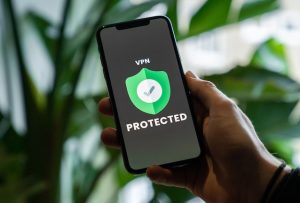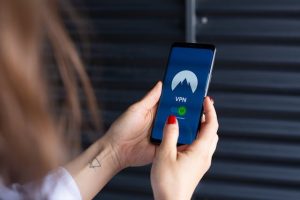Table of Contents
Fake and malware-infected apps are far more common in the official app store than Google would like. Malicious apps disguised as VPNs, chat apps, or antivirus tools pose a significant threat to user security and privacy.
If you download a compromised app from the Play Store, you could install viruses or other malware disguised as free VPNs or messaging apps. An innocent app can become your worst enemy.
Since cybercriminals frequently exploit antivirus and VPN apps to infect phones, Google Play is now making it easier to spot which VPN apps have undergone independent security audits.
App Safety in the Google Play Store Under Fire

There’s a common perception that if an app is available on the Play Store, it must be safe. Both Google and Apple’s app stores hold a monopoly in the market and are commonly perceived as the most secure platforms for downloading apps.
However, a dishonest app developer can bury just a few lines of malicious code in otherwise innocuous code to open a backdoor for future abuse.
Google’s Play Store safety agreement does not extend to scrutinizing each app. For this reason, malicious apps with built-in snooping functions keep appearing in the official app store. Cybersecurity researchers keep waging an ongoing battle against cybercriminals to identify and remove dangerous apps from the Play Store.
Why Is Google Focusing On VPN Apps?
In an age where online tracking and surveillance have become the norm, Virtual Private Networks (VPNs) are online users’ only defense against invasive tracking. A VPN encrypts internet connections to prevent hackers from eavesdropping on people’s private conversations. It also masks user’s IP addresses and prevents the leaking of login credentials, banking information, and other sensitive data.
VPNs handle all your sensitive user data, which makes it an easy target for cybercriminals. They are actively exploiting people’s need for safety and data privacy with fake VPN apps.
The New Google Audit Badge

Google has rolled out a new Independent Security Review badge to indicate which Android VPN apps have passed the globally recognized, independent Mobile App Security Assessment (MASA). App developers can acquire MASA certification by submitting their apps to the scrutiny of independent auditors, who base their audits on a global security standard.
Under the new program, Google Play displays apps that passed the MASA assessment with a badge. The badge consists of a shield with a star icon that appears at the bottom of the Data Safety section on the Play Store. The largest and most well-known VPN providers, like NordVPN and ExpressVPN, already display the new badge.
How Secure Is a Masa-Audited VPN App?
The new MASA badge in Google’s app store does not guarantee that an app is free of vulnerabilities. The MASA audit guidelines only ensure that app developers have avoided obvious bad practices, for example, writing sensitive data to application log files or reusing cryptographic keys for multiple purposes.
Nevertheless, the value of the MASA audit is that it indicates a developer’s commitment to adhere to good security and privacy practices. That commitment is in stark contrast to the intentions of many free or fake VPNs.
Free VPNs often profit from collecting the data they intended to protect and selling it to advertisers. For example, a quick search for a VPN in the Play Store could turn up over 200 free VPN apps. However, since Google can’t check each developer’s background or even tell you who runs the companies, there is no guarantee that they use safe technologies or good encryption.
App Store Security in the Broader Context

Google currently faces several antitrust challenges over the dominance of its Play Store in the app market. Developers renew their criticism of its app review processes and commission systems every time a new batch of bad apps gets discovered in the Play Store. Therefore, Google’s introduction of enhanced security audit badges at this time may indicate that they’re making a bigger effort to enhance user safety and win users’ trust.
Although this initiative initially focuses on VPN apps, Google plans to expand it to other categories of apps in the future. The Play Store still has an outrageous number of fake dating apps, social media filters, banking, and chat apps in its inventory.
Making More Informed Choices
This latest development is a much-needed improvement in the Play Store’s security measures. It’s a move to empower users to make better choices about the privacy and security of the apps they download.
While a free VPN might sound like a good idea, VPN providers who do not have the new badge may log your online activities and sell the data to marketers. Steer clear of the fly-by-night VPN operations. Use a free VPN trial from one of the VPN providers displaying the new badge within the Play Store.
Author Profile

- Online Media & PR Strategist
- Blogger and Educator by Passion | Senior Online Media & PR Strategist at ClickDo Ltd. | Contributor to many Education, Business & Lifestyle Blogs in the United Kingdom & Germany | Summer Course Student at the London School of Journalism and Course Instructor at the SeekaHost University.
Latest entries
 BusinessJuly 8, 2024How to Make Money in London (14 Best Ways to Earn Extra Cash)?
BusinessJuly 8, 2024How to Make Money in London (14 Best Ways to Earn Extra Cash)? Living in LondonJuly 7, 2024Top 10 Co-Living Places in London for Affordable & Convenient Living
Living in LondonJuly 7, 2024Top 10 Co-Living Places in London for Affordable & Convenient Living Business AdviceJuly 4, 20245 Marketing Strategies for London Personal Trainers in 2024
Business AdviceJuly 4, 20245 Marketing Strategies for London Personal Trainers in 2024 LifestyleJuly 2, 2024The Intersection of Career and Love for London’s Professionals
LifestyleJuly 2, 2024The Intersection of Career and Love for London’s Professionals




